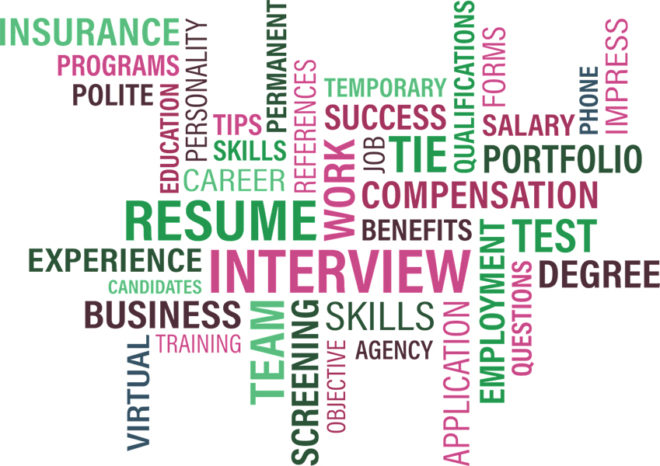Today, our Guelph Employment Agency is sharing tips on the basic do’s and don’ts for resume writing. Resumes are the first step to getting meaningful employment. Resume writing takes thoughtful crafting to represent who you are and the skills you offer to a potential employer. By learning what to include on your resume to make yourself a strong candidate amongst the rest, you’ll be headed one step closer to your next job. Apply any of these tips from Task Force Employment Agency in Guelph to re-draft your current resume or create a new one and see where your resume will take you in our Guelph Employment Agency, the Guelph job market and beyond!
1) Start With Basic Information
Any resume that you send out must include your basic information. You can skip adding your home address on your resume, but make sure you include your first name, last name, a phone number (where you actually plan on picking up phonecalls) and a professional emailing address. If you are currently employed, don’t use your work address for this email! You can also include your LinkedIn profile if you have one and any relevant platforms that you are on. For example, if you are applying to a role in social media, you should include your social media handles. Make sure that whatever social media you include, that it is appropriate and relevant to the employer.
2) List Your Employment In Reverse Chronological Order
When employers are looking to hire, they want to see a resume that has the candidate’s recent jobs first. This helps them understand where your skill level and job level is currently, and where it has come from. Although some people still do skill-based resumes, it makes more sense to keep it in reverse chronology because it tells your story from what you are currently doing, and the roots of how it started.
3) Only List Employment That Is Relevant
Generally speaking, part of Generation X, Millenials and the upcoming Generation Z, will have various jobs throughout their careers in comparison to older generations. While some view this as a negative, it is a positive in terms of their experience and learning. But when applying to jobs, these workers will have a longer list of employers than what is traditionally seen on resumes. This is why it is important to only list relevant employment on a resume.
Sure, you may have worked at a dog shelter for a year, but it may not be the most relevant employment to list on a resume for a technology company (unless it’s a dog related, tech company).
4) Keep Your Resume Short and To The Point
With each job, be sure to include a description of your position and a short list of your accomplishments. Emphasis on short! A maximum of 5 bullet points for each job is enough to demonstrate your competency in the role, but isn’t too long that the person in charge of hiring gets tired of reading through your resume. On average, we recommend that a resume be one or two pages, which means that you can’t include every detail of information. Think of a resume as a sample of what you can bring to the job, which baits the employer to invite you in for an interview where you can go into depth.
5) Don’t Go Overboard With Jargon, and Stick To Keywords
If you’ve searched through job listings, you’ll know that there’s a small section included that says what the employer is looking for in the candidates for hiring. Try to use the keywords in this section when you are explaining your employment experience or skills. If these keywords include jargon that is specific to your field—like the tech sector or the health care sector—try and make it as easy to read as possible. Using a few pieces of jargon throughout your resume is great, but keep in mind that the first person to read your resume may not be someone in the same line of work. For example, the first person to read your resume may be a recruiter—they may not have the same experience with jargon as your potential employer has, however they are the one who will sift through resumes to find the appropriate ones to forward to the employer.
6) Make Sure To Include a Skills Section
With every job, every volunteer experience, or even through self-teaching, a job candidate will have a set of skills that is unique to them. It is important to include a quick list of bullet points with the skills you have that again, are relevant to the job you are applying to. If your skills aren’t directly related to the job you are applying to, make sure that they are “transferrable skills” or soft skills. Transferrable skills are those that can be important in any job role—such as an ability to use Microsoft Office, or the ability to work in a team setting. Soft skills, are the social and communication skills that workplaces seek. Check out our previous post to learn more about the importance of soft skills on a resume.
7) Education Should Be Listed (all forms of it!)
Of course, listing your level of education and your area of study is important when you are applying to jobs. Again, education should be listed in reverse chronological order with the most recent and relevant piece of education at the top. If you have graduated with a degree or diploma, it’s not necessary to list your graduation dates because an employer is just looking to see that you have graduated. And don’t forget to list any continuing education programs, certificate programs, or relevant courses you have taken. These are just as important as any degree or diploma listings on your resume because it demonstrates that you have taken the time to enhance your learning and skill set.
Learn More About Resume Writing With Task Force
Of course, these are just the basics of what you can put in your resume. Depending on what jobs you are applying for, you may need to enhance your resume with a portfolio of work, a website, or a compelling cover letter.
But most importantly, no matter what you include on your resume, you need to make your resume readable! This means sticking to fonts that are easy on the eyes—such as Times New Roman, Calibri, or Arial, and keeping their size large enough to read—somewhere between a 10pt and 12pt. To differentiate between information in the text and the text headers, try and use a different (but still readable) font. This helps to visually break up the sections of your resume and highlights your basic information, job titles, education, and skills.
And please be sure to proofread your resume before sending it out to employers. By taking the time to proofread what you have written, you demonstrate to the employer that you are serious about the job and that you are putting your best effort forward. This leaves a pleasant first impression for the employer and will get you closer to the hiring process! For more information on resume writing and help finding a job in the Guelph job market, please contact Task Force Staffing Solutions. We have over 15 years of experience as a Guelph Employment Agency, finding employment for job seekers and finding the right employees for employers. Please, don’t hesitate to contact us today so we can help you find meaningful employment in Guelph.




